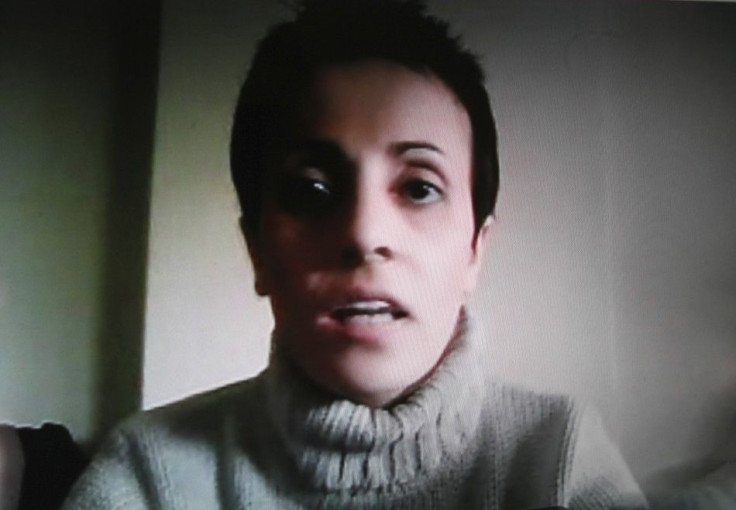Fadwa Suleiman: Actress And Alawite Icon Of Syrian Revolt Warns Of Sectarian Violence

Fadwa Suleiman, Syrian actress and a high-profile Alawite member of the Syrian revolution led by an opposition dominated by Sunni Muslims against the government controlled by Alawites, is saddened that the revolution is not going in the right direction.
Disillusioned at the level of state control over theater and films, Suleiman joined the popular protests last year, to become one of the most recognized faces of the violent uprising against President Bashar al-Assad.
However, she expressed resentment over her country's peaceful demonstrations having turned into an armed conflict that was heading toward a sectarian war.
In an interview with the AFP, Suleiman said she was saddened to see that the revolution is not going in the right direction, that it is becoming armed, that the opposition which wanted to resist peacefully is playing the game of the regime and that the country is heading for sectarian war.
I didn't want to leave Syria but I didn't have the choice. I was being threatened and I was becoming a threat for the activists who were helping me, she said.
Before she joined the protests, Suleiman was well-known for her roles in movies, theater, radio and television. She was drawn to the movement as part of the mobilization of the cultural elite of the country after the revolution erupted in March last year.
She is considered an anomaly in the revolution, largely attributed to being a woman belonging to Syria's ruling Alawite minority taking part in a male-dominated Sunni rebellion, a Reuters report said.
Unsurprisingly, this has led to many influential Alawites disavowing her, including her brother Mahmoud, who declared on state-run television channel that Syria's unity was more important for him than his sister.
Suleiman -- who became a well-recognized representative of the Syrian rebels when she appeared in footage shot in the Sunni dominated rebel city of Homs that was broadcast on the Al-Jazeera television news network -- said she wanted to stop the revolution, which was eventually sliding into a sectarian war, by being a part of the protests.
Everyone was saying that Salafist Sunnis were going to attack the Alawites, she said. So, in Homs last November, I, an Alawite woman, got up on the stage and declared that we were all united against the regime.
Suleiman is widely seen as the product of westernized and secular Syria, while her opponents are largely religious fanatics sponsored by Syrian supporters in the rest of the Arab world.
The actress, whose Alawite identity plays a major role in determining her place in the revolution, however, rejects her own sectarian labeling. I am not Alawite, and not an artist, she wrote on her Facebook page in December. I have actually been a rebel against all the obsolete values in our society since the day I was born...A rebel for freedom, and for people to be free to think, believe and love as they want, so long as that comforts them, even worshiping trees...So, down with the Alawites and long live their humanity...Down with the Sunnis, Druze, Ismailis, Muslims, Jews and Christians, and long live their humanity...Long live humanity in dignity everywhere, of whatever religion or affiliation.
© Copyright IBTimes 2024. All rights reserved.






















